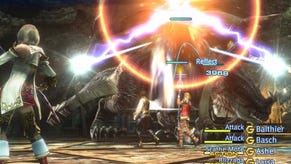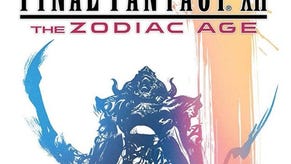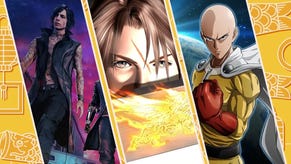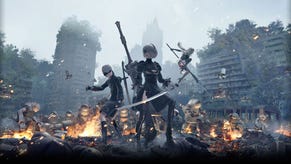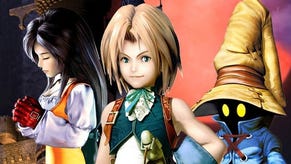Final Fantasy XII
Nothing lasts... But nothing is lost.
Sometimes videogame publishers are lazy and dull. They find a formula that works and they stick with it rigidly until every drop has been wrung from both the game, and its audience. They build interminable sequels, demanding from their development teams that everything should be by the numbers, within the lines, and comfortably corresponding to the expectations of the audience, and of the management team. They take good ideas and stretch them out into annual updates, robbing them of their impact and leeching their original creators of the fundamental desire to create. Sometimes, even the most dedicated fan of the interactive medium - particularly the most dedicated fan of the interactive medium - can't help but be a little depressed and downhearted.
Sometimes videogame publishers sparkle with unexpected creativity. Sometimes they shatter a mould which had grown so familiar that you had never anticipated change; sometimes they make a giant, shocking leap of faith, place their full trust and confidence in the vision of a development team, and allow a series to be remodelled into a new, exciting form. They hand the keys to their most valuable franchises to creators whose intent is not to build worthy, respectful homages that keep the execs happy and make sales projections easy, but rather to tear the cloth up and find out what new thing can be stitched together from the remnants. Sometimes, even when such experiments fail, you can't help but be excited by being a fan of the interactive medium. When they succeed, they create games which redefine and reinvigorate entire genres with sweeping arcs of their creative brush.
It's easy to roll your eyes at Final Fantasy XII because after 11 sequels and easily as many spin-off titles, Final Fantasy is a comfortable staple of gaming. Although the brand has been branched out into new areas in the past - Final Fantasy Tactics was arguably one of the finest turn-based strategy titles of its day, while Final Fantasy XI was a contender for the massively multiplayer crown before World of Warcraft stomped all over that particular market - the core games, which the Japanese refer to as the "number series", are generally well understood. Players fall into one of two camps - you like Final Fantasy, or you don't, with insufficient variation to be found from sequel to sequel which will change your mind either way.
At least, that's the conventional wisdom. However, we live in exciting times.
Chrysalis
What makes a Final Fantasy game into a Final Fantasy game? Each game in the series is set in a new world, with new characters and a re-imagined battle system, but common themes join them together. Over the course of the NES and SNES titles in the series, things like chocobos, moogles, characters called Cid and orphans emerged as key elements which threaded between the various games, while latterly - and especially in the PlayStation and PS2 titles - massive production values, high quality rendered video and sweeping orchestral scores also became recognisable elements of the series.
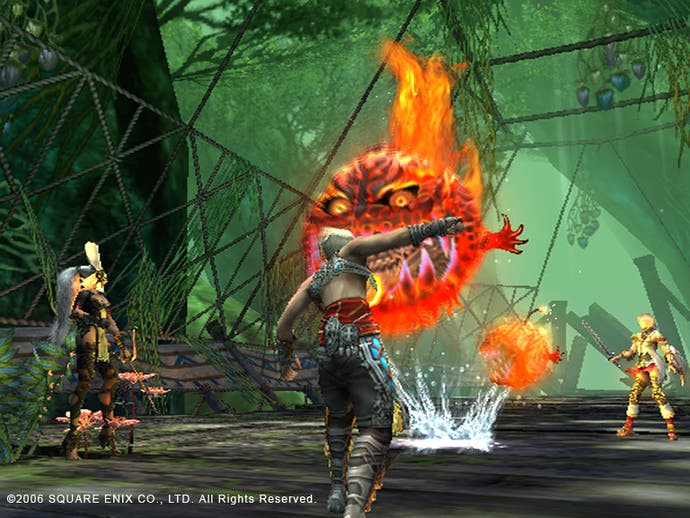
By those standards, Final Fantasy XII is comfortably at home in the series. All of the quirky elements that tied together previous games are present and correct, and many homages to earlier titles litter the game - dedicated fans of the series will be thrilled to see nods to past games in the form of summon monsters named after spells and bosses, airships named after former summon monsters, and even a boss who wields famous swords from earlier games and is battled while the stirring "Clash on the Big Bridge" theme from FFV plays. Such homages will fly over the heads of players unfamiliar with Final Fantasy as a franchise, but they won't miss much; these are knowing nods, rather than key plot elements.
The production values, too, are unmistakably those of a Final Fantasy game. Square Enix' talent for producing rendered movie sequences has diversified over the course of the PlayStation 2 era, with the firm continuing to work on astonishing pre-rendered scenes but also applying their talent for scene composition and direction to real-time graphics. The rendered introduction to FFXII will stick in players' minds for a long time, presenting as it does a wonderfully composed scene-setting piece which is equally comfortable with large crowd scenes and brilliant aerial battles as it is with more intimate character moments - and which, while hugely reminiscent of Star Wars in places (a franchise from which FFXII draws more than a little inspiration), is also good enough to make fans of Lucasfilm's more recent turkeys cry into their Hallowe'en wookie masks for what could have been.
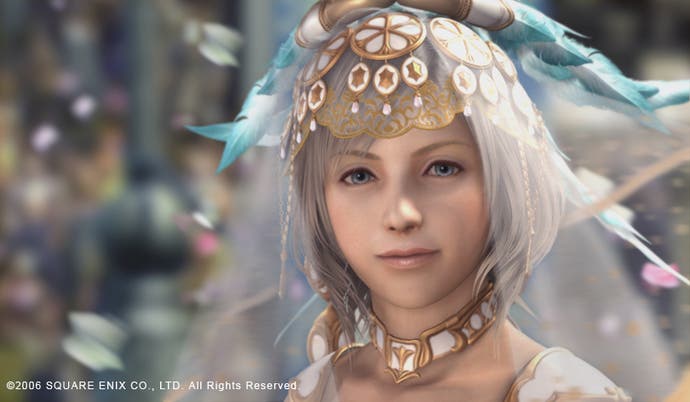
Equally, however, Square Enix' developers seem more comfortable than ever with non-rendered sequences - and rather than littering them all over the game, they reserve the rendered parts for very special moments, which gives them all the more impact. Both the graphics engine, which pushes the PS2 to its absolute limits, and the studio's own capabilities have evolved to the point where convincing scenes can be accomplished without dragging the player out into a rendered scene, and more often than not FFXII is content to allow the richly detailed in-game environments and superbly animated and textured characters breathe a little, rather than substituting them for video clips when anything of note happens.
The game also doesn't lack for an orchestral score - and from the stirring opening notes of the now-iconic theme of Final Fantasy through the many different regional, cultural and emotional highs and lows of the soundtrack, it's another masterpiece of videogame music, with even the less memorable tracks being ideally suited and pitched to their environment and to the gameplay and scenes which they underscore.
Metamorphosis
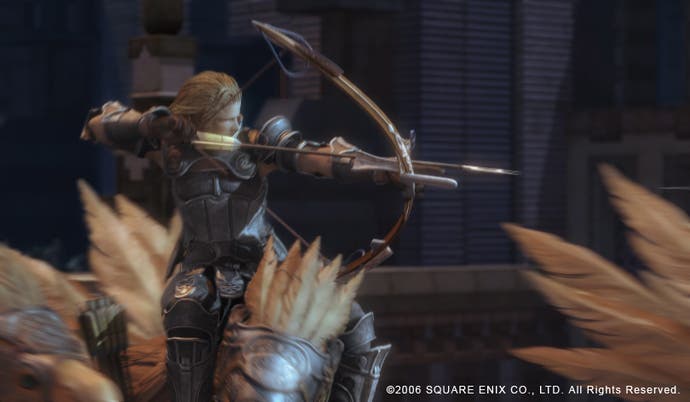
So far, so Final Fantasy. However, it's not those things which remain the same that make Final Fantasy XII worthy of high praise. Although it's probably a fine recommendation for the series that we consider things like superb rendered video, great graphics, stunning music and an interesting storyline to be expected, it's also the case that just doing those things would make for an average FF title, and one of little interest to anyone who has previously been left cold by the series. No, what sets FFXII aside from its peers is not that it has maintained a standard of quality; it is that it has done so while changing the very basis of how the game works.
The most obvious outward expression of this change lies in the battle system of the game. Gone are random encounters; gone, in fact, is the concept of the battle system being in any way removed from the act of walking around the world. Just as Final Fantasy X chose to do away with the world map, instead giving you lush, properly modeled environments to walk through as you moved from place to place, so Final Fantasy XII has removed transitions from the field to battle. Instead, you walk up to monsters in the game, fight them there and then, and move on - giving you the option of walking around them if you're low in health or too low level to have a chance to win, but equally presenting the danger that your battle will end up attracting other monsters who are wandering about. Indeed, monsters aren't averse to running away to try and escape when their health is low, and doing so can disturb nearby enemies into attacking you as well - while if you need to escape, you'll actually have to quite literally run away, avoiding other enemies, until your attacker gets bored of chasing you and leaves you alone.
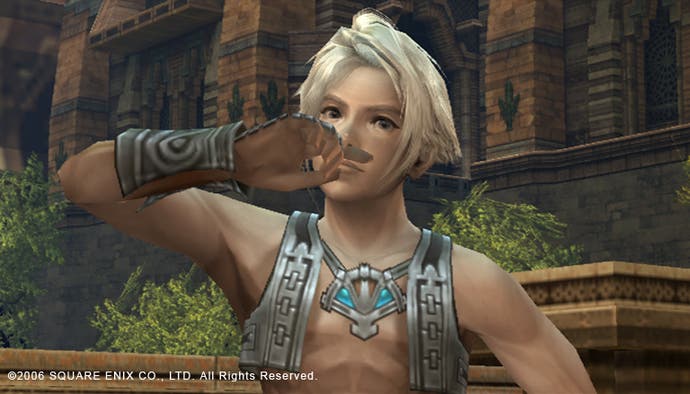
Sound familiar? If so, you've probably been playing some massively multiplayer games - and it's very obvious within minutes that FFXII has learned much from its massively multiplayer sibling, FFXI, as well as many other MMO titles. The game has also completely done away with the strict concept of turns which was utilised by previous Final Fantasy titles; instead, both your characters and monsters have a certain wait time for each move, with your characters' being indicated by a bar filling up on screen. The bar fills up to the top, the move is executed, and the bar starts filling up again; meaning that the amount of time a move takes is crucial, rather than your position in the turn order.
The game also borrows the MMOG concept of auto-attack, so when you attack a monster, you won't have to keep on selecting the "attack" command - your character will keep bashing the creature until it's dead. Meanwhile, other characters which are added to your party are actually controlled by the game, and assist you in battle while you directly control and run around with one character; but while this could have resulted in a game which was more than a little bit dull and hands-off, instead the designers have given a fine level of control over the AI which makes every encounter into a tactical and engaging experience. A system called Gambits allows you to set up and tune a number of conditional commands for each character - so for example, you might have your healer set up to heal a given character when they fall below 20 per cent health, and so on. These commands are stacked and rated in order of priority, allowing you almost total control over how the AI behaves, while you focus on controlling one of the characters, or simply turn Gambits on for all characters and flit between them micro-managing the battle.
The changes to the battle system are by far the most dramatic to be introduced in any Final Fantasy title; they change the structure of the gameplay entirely, while still leaving many of the core elements that attracted fans in the first place intact. Each change has been carefully considered, and the team have introduced many elements which we expect to see copied in other games - for example, red, green and blue arcs connecting monsters and player characters to demonstrate who's attacking who, and who's healing who, which allows even large conflicts to be understood at a glance.


